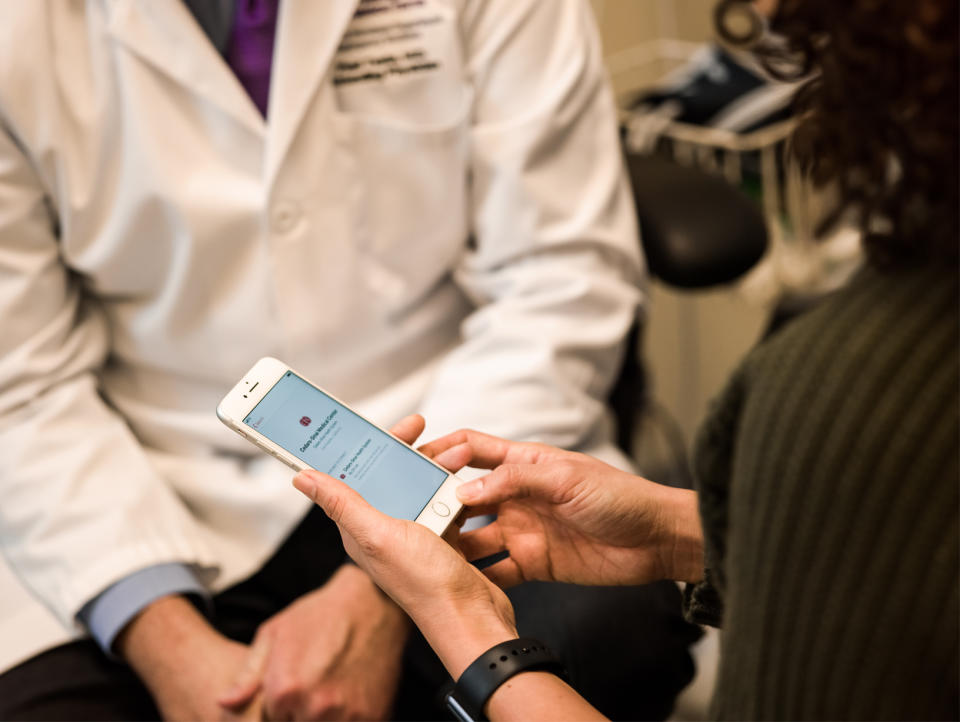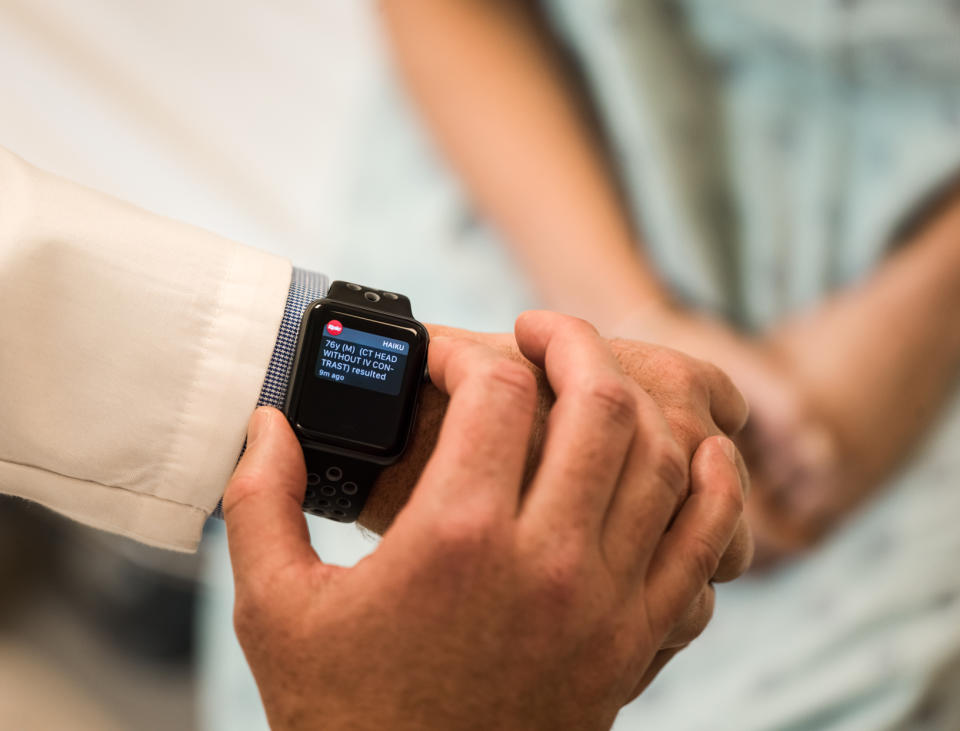Apple Strikes a Landmark Deal with America's Biggest Medical System
On February 11, Apple (NASDAQ: AAPL) announced that it's reached a deal with the U.S. Department of Veterans Affairs (VA) to make its Health Records feature available to veterans using the iPhone. This is a huge deal for Apple, as the first record-sharing platform of its kind available to VA patients. It should be noted that the VA is the largest medical system in the U.S., serving more than 9 million patients across 1,243 facilities.
This is the latest move by Apple to stake a claim in the healthcare industry. It could represent a big opportunity for the company, particularly in the wake of slowing demand for its flagship iPhone.

The VA is adopting Apple's Health Records feature (of the Health app) for patients using the iPhone. Image source: Apple.
Portable health records
Apple has already enlisted hundreds of hospitals, clinics, and other health institutions to support the Health Records feature of the Health app, which allows patients to see their aggregated medical information from participating institutions (now including the VA), organized into one view in the Health app.
Health records data includes allergies, conditions, immunizations, lab results, medications, procedures and vitals, and is displayed along with other information in the Health app like Apple Watch data. All Health Records data is encrypted and protected with the user's iPhone passcode, Touch ID, or Face ID. "This means VA patients will get a single, integrated snapshot of their health profile whenever they want quickly and privately," according to the press release.
The Health app on the iPhone has a growing number of helpful features, including medication tracking, disease management, nutrition planning, and screening patients for medical research.
"Watching" your health
For more than a year now, Apple's move into the healthcare sector has been gaining steam. In late 2017, the U.S. Food and Drug Administration (FDA) announced that Apple was one of just nine companies chosen for a pilot program designed to improve the process for approving software-based medical apps and devices. Shortly thereafter, the FDA approved the first medical device accessory for the Apple Watch -- the KardiaBand EKG (electrocardiogram) reader by medtech start-up AliveCor.
The introduction of the Apple Watch Series 3 took things to the next level, offering a number of features for health-conscious users, including providing heart measurements during workouts or recovery, or when at rest. The biggest development, however, was the capacity of sensors on board the device to detect a dangerous spike in the heart rate, known as atrial fibrillation (AFib), and notify the user of the findings.
Apple then partnered with Stanford University to launch the largest study ever of its kind, the Apple Heart Study, to determine how accurately the Apple Watch could detect the irregular heartbeats caused by AFib. The study enrolled a mind-boggling 419,093 participants, according to a recent issue of the American Heart Journal.

Image source: Apple.
The preliminary results of this study prompted the FDA to clear two mobile medical apps for the Watch. One analyzes heart-rate data to detect AFib, and the "ECG" app takes an electrocardiogram that wearers can share with their physicians. Having received the FDA's blessing, Apple activated these features on the Apple Watch with the release of WatchOS version 5.1.2 last October.
This resulted in a number of health insurers subsidizing all or part of the cost of the device for patients participating in their wellness programs.
The wave of the future
This landmark deal with the VA isn't just a big deal for the veterans served by the agency. Apple is one of the few companies with the heft and influence to take advantage of recent changes regarding the portability of digital health information. The U.S. Department of Health and Human Services (HHS) recently proposed new rules that require healthcare providers to provide patients access to their electronic health information. It also requires "open data sharing technologies" by 2020, which will make it easier for patients to change insurers and care providers.
By being at the forefront of this transition, Apple is getting a digital foot in the door to a trend that will only continue to grow.
More From The Motley Fool
Danny Vena owns shares of Apple. The Motley Fool owns shares of and recommends Apple. The Motley Fool has the following options: long January 2020 $150 calls on Apple and short January 2020 $155 calls on Apple. The Motley Fool has a disclosure policy.

 Yahoo Finance
Yahoo Finance 